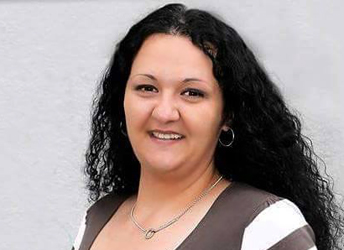Today, 15th of September is the first day of school in Bulgaria. This time, the customary emotions are intermingled with worries over the long-awaited reform in Bulgarian education launched on 1 August as the Pre-school and School Education Act entered into force.
But will the reform lead to better things or will it merely focus on structure, with essence remaining a secondary issue? From a country with good educational traditions, Bulgaria has in recent decades, taken a dive and is now a “leader” in educational inequality. Children in small towns and in villages are no less than three years behind children their age in cities. Children from poor families get poorer grades than children in well-off families. Some 3,900 children dropped out of school during the 2015-2016 academic year alone. A ray of hope is the success of Bulgarian children at mathematics and computer Olympiads, success that hinges on the enthusiasm of their teachers.
One of the changes is that basic education will now be considered completed after the 7th grade or a year earlier and informal learning is now admissible. Providing “equal access to high-quality education” remains, but the meagre budget for the state schools will also be used to fund private schools. The project “Your hour” under the Science and Education for Smart Growth Operational Programme comes to support the idea of discovering talent at an early age and promoting it. The project actually revives the school interest groups we remember well from the times of socialism, though the difference is that each EU project has a deadline of 29 months. What are we to expect of the changes and how do things stand in education in Bulgaria:
 “The paperwork is just too much. Papers, papers, papers… If we don’t want to fall behind with the all the paperwork children will have to come second,” says Teodora Veleva, a schoolteacher.
“The paperwork is just too much. Papers, papers, papers… If we don’t want to fall behind with the all the paperwork children will have to come second,” says Teodora Veleva, a schoolteacher.
The new law focuses on key competencies. Will this mean a better chance of a successful career for young people?
“Key competencies have always been part of school education, the trouble is that we are not specially trained for this. Many teachers were trained using out-of-date methods and the qualification courses that are organized are a formality, a way to spend money rather than real training. In fact we are forced to cater for our qualification ourselves. Anything new I offer the children I have to arrive at all by myself.”
Another major problem is the inadequate evaluation of knowledge:
“They are now accustomed to having their knowledge evaluated with tests. But when they study for tests they never learn to put down their knowledge in written form. At the national matriculation exams in biology, for example, there used to be just one open-ended question and that mostly went unanswered. Now they are all closed-ended. Closed-ended tests are a way to take pot luck or to choose the answer by process of elimination,” Veleva says. In her words one of the problems education in Bulgaria faces is that:
“At the moment there is so much negative information in the media. They are always on the lookout for sensation – if there was a fight at some school, and how bad our teenagers are. But there are no bad children, there are bad adults. Teenagers are the same anywhere in the world. But their energy has to be channeled into something they find interesting so they will learn something and keep their minds off any nonsense,” Teodora Veleva says and adds that she herself has always tried to reduce the distance between herself and the kids. “I talk to them in their own language, about the things that interest them without worrying about the difference in our ages.”
Teodora Veleva is one of 3 percent of teachers in Bulgaria aged under 35. The children are very fond of her and attend her biology classes but also her first-aid courses. So it is true to say that the voice of teachers like her must be heard in the Bulgarian system of education, that the system must put children first. European funding must be a means and education – an end.
English version: Milena Daynova
Prayer served by His Holiness Bulgarian Patriarch Daniil on February 22, marks the beginning of the celebrations for the consecration of the new church "St. John of Rila" of the Bulgarian Orthodox community in London. For the..
"Thracians, Wine and Culture" is the theme of a seminar at the archaeological complex "Valley of the Thracian Kings" near Kazanlak , which brings together scholars and researchers from all over Bulgaria on February 22. This is the ninth edition of..
Help me do it myself, get me in touch with nature, take care of my immunity – these are the principles that the teachers at the Bulgarian kindergarten "Hristo Botev" in the Slovak capital Bratislava follow. The kindergarten has been operating since 2009..
The Martenitsa Festival was held in Brussels f or the third consecutive year . Cultural organizations from Bulgaria, Romania and Moldova presented their..
Exactly 3 years ago, on February 24, Russia’s invasion of Ukraine began – an event that woke up Europe 77 years after the end of World War II and called..

+359 2 9336 661
